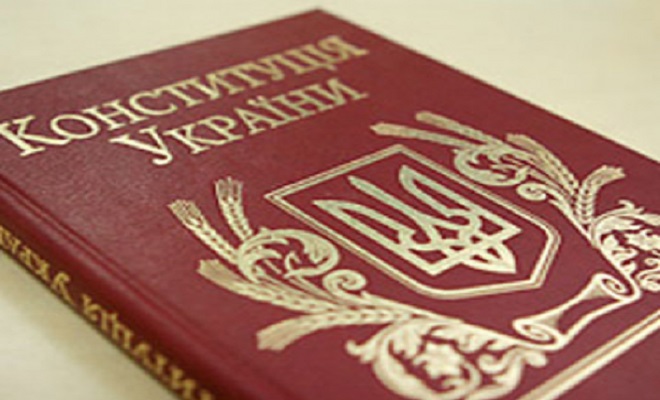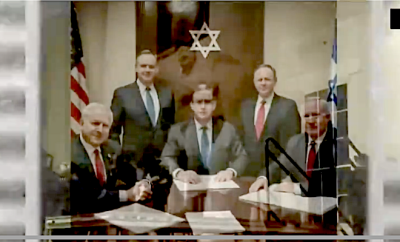 Russia Insider
Russia Insider
WW3
The LPR and DPR Did NOT Recognize Crimea as Part of Ukraine
Western media claims that proposed amendments to the Ukrainian constitution recognize Crimea as part of Ukraine are false and mendacious
by Alexander Mercouris, Russia Insider:
The Donetsk and Lugansk People’s Republics have published their proposed amendments to Ukraine’s constitution.
Their effect is in line with the confederal proposals they announced earlier (seeUkraine: Confederal Solution Looms,Russia Insider, 14th May 2015) and as such ought to have come as no surprise.
A wholly artificial media storm has however been whipped up over the proposed amendments to the Ukrainian constitution’s article 133.
Article 133 describes the constituent regions of Ukraine. In its present form it reads as follows:
“Article 133
The system of the administrative and territorial structure of Ukraine is composed of the Autonomous Republic of Crimea, oblasts, districts, cities, city districts, settlements and villages.
Ukraine is composed of the Autonomous Republic of Crimea, Vinnytsia Oblast, Volyn Oblast, Dnipropetrovsk Oblast, Donetsk Oblast, Zhytomyr Oblast, Zakarpattia Oblast, Zaporizhia Oblast, Ivano-Frankivsk Oblast, Kyiv Oblast, Kirovohrad Oblast, Luhansk Oblast, Lviv Oblast, Mykolaiv Oblast, Odesa Oblast, Poltava Oblast, Rivne Oblast, Sumy Oblast, Ternopil Oblast, Kharkiv Oblast, Kherson Oblast, Khmelnytskyi Oblast, Cherkasy Oblast, Chernivtsi Oblast and Chernihiv Oblast, and the Cities of Kyiv and Sevastopol.
The Cities of Kyiv and Sevastopol have special status that is determined by the laws of Ukraine.”
The proposed amendments insert the Donetsk and Lugansk People’s Republics as areas possessing special status into article 133. The new amended form of article 133 that is being proposed would read as follows:
“Article 133
The system of the administrative and territorial structure of Ukraine is composed of the Autonomous Republic of Crimea, some regions with special status in Donetsk and Lugansk oblasts, oblasts, districts, cities, city districts, settlements and villages.
Ukraine is composed of the Autonomous Republic of Crimea, some regions with special status in Donetsk and Lugansk Oblasts, Vinnytsia Oblast, Volyn Oblast, Dnipropetrovsk Oblast, Donetsk Oblast, Zhytomyr Oblast, Zakarpattia Oblast, Zaporizhia Oblast, Ivano-Frankivsk Oblast, Kyiv Oblast, Kirovohrad Oblast, Luhansk Oblast, Lviv Oblast, Mykolaiv Oblast, Odesa Oblast, Poltava Oblast, Rivne Oblast, Sumy Oblast, Ternopil Oblast, Kharkiv Oblast, Kherson Oblast, Khmelnytskyi Oblast, Cherkasy Oblast, Chernivtsi Oblast and Chernihiv Oblast, and the Cities of Kyiv and Sevastopol.
The Cities of Kyiv and Sevastopol, and some areas of Donetsk and Lugansk oblasts, have special status that is determined by the laws of Ukraine.”
(inserted words proposed by amendments rendered in bold – AM)
The storm does not relate to the amendments that insert the Donetsk and Lugansk People’s Republics as regions having special status in Ukraine, but to the fact that the proposed amended article 133 continues to refer to Crimea as a constituent part of Ukraine.
This is being interpreted by some people as an admission by the Donetsk and Lugansk People’s Republics that Crimea is still part of Ukraine.
This is nonsense.
Speaking for myself, I am always surprised by the attention people give to the wording of documents thrown up by the Ukrainian conflict. Since there is no possibility the Ukrainians will ever carry out the provisions of these documents scrutinising them in such detail seems to me to be a waste of time.
Anyway, what is being done here is a classic example of how not to read amendments to a legal document.
In the proposed constitutional negotiations the Donetsk and Lugansk People’s Republics would not be representing Crimea or Russia. They would be representing themselves. Whilst they can speak for themselves, they cannot speak for Crimea or Russia.
The Donetsk and Lugansk People’s Republics are therefore entitled to demand on their own behalf that article 133 be amended to include them.
The Donetsk and Lugansk People’s Republics are not entitled to demand on Crimea’s or Russia’s behalf that article 133 be amended to omit Crimea.
Were they to do so they would be acting in a way that implied they were representing Russia, confirming at a stroke the Ukrainian and Western claim that Russia controls them and that they are simply proxies of Russia.
For obvious reasons neither the Donetsk nor the Lugansk People’s Republics nor the Russians (who have undoubtedly been consulted about these amendments) are prepared to let that happen, which is why the amendments do not concern the status of Crimea.
Ukraine’s recognition of Crimea as Russian is not a subject for negotiation between Ukraine and the Donetsk and Lugansk People’s Republics. It is the subject of the negotiation that may one day happen between Ukraine and Russia.
Ukraine has already rejected the proposals and refuses to negotiate with the Donetsk and Lugansk People’s Republics (see Kiev Rebuffs Rebel Offer to Keep Donbass a Part of Ukraine, Russia Insider, 9th June 2015). As I and others have said many times, there is no possibility Ukraine will ever willingly engage in negotiations or agree to such proposals.
In fact a strong case can be made – and has been made – that it is better for the Ukrainians, or at any rate for the Maidan movement, to lose the Donbass than agree to these proposals.
If Ukraine were to lose the Donbass it would still be possible, at least in theory, to set up in what would be left of Ukraine the sort of monocultural Ukraine the Maidan movement aspires to. It might also be possible, if only in theory, for this rump Ukraine one day to join the EU and NATO.
Neither would however be possible, whether in theory or in practice, if Ukraine were restructured on confederal lines to include the Donbass in the way envisaged by the latest proposals.
The Maidan movement is not reconciled to the loss of the Donbass and I doubt it ever will be. At the same time it shows no willingness to compromise in a way that might offer some hope of keeping the Donbass in Ukraine. Instead it continues with its disastrous all-or-nothing course of demanding return of the Donbass whilst refusing to compromise or negotiate.
That is not a formula for a “frozen conflict”, which is what some people are predicting. It is a formula for war.
What that means is that when the fighting resumes in earnest, as it will, this minor episode will become a footnote, and will be quickly forgotten. Until then it makes makes much more sense to focus on the deteriorating situation on the ground than to worry about arcane legal points that are of only theoretical interest even to lawyers.
Read More @ Russia Insider.com












